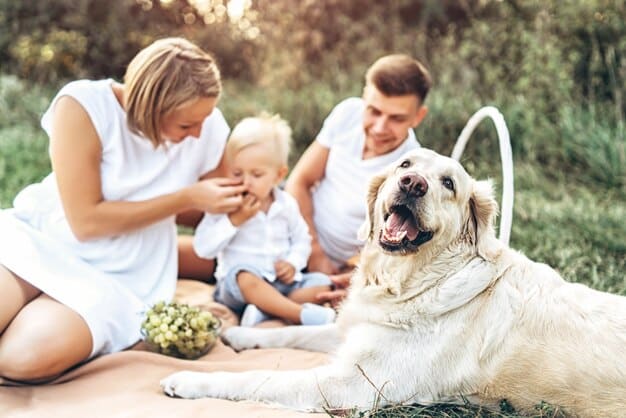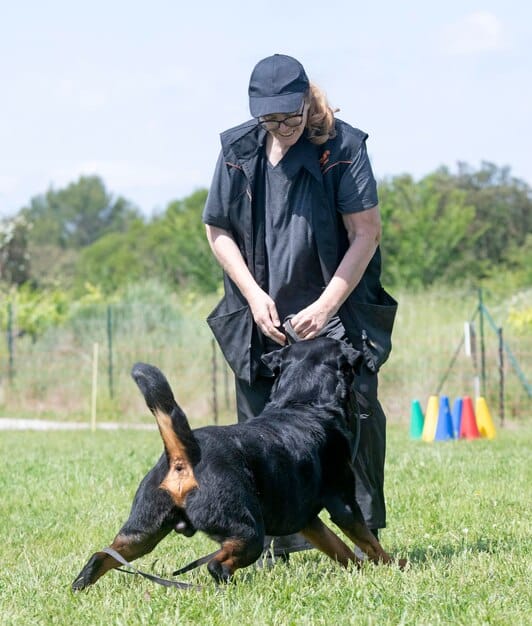Adoption Counseling Best Practices: Matching Pets with Families in 2025

Adoption counseling best practices in 2025 focus on personalized matching, utilizing technology and behavioral assessments to ensure pets are placed in homes that meet their specific needs and offer a lifelong commitment.
Adoption counseling best practices: Matching pets with the right families in 2025 requires a comprehensive and empathetic approach. The goal is to ensure a harmonious and lasting bond between the animal and its new owners, leading to successful adoptions and reducing the likelihood of returns.
The Evolving Landscape of Pet Adoption
Pet adoption has transformed considerably over the past decade, driven by increased awareness of shelter animals and changing societal attitudes towards pet ownership. As we look towards 2025, these trends are expected to accelerate, requiring adoption counseling to adapt and innovate.
Technological advancements are playing a pivotal role, offering new tools for assessing pet and owner compatibility. At the same time, a deeper understanding of animal behavior and the complexities of human-animal bonds is shaping best practices in adoption counseling.
The Rise of Personalized Pet Matching
Personalized pet matching is becoming increasingly important in adoption counseling. Instead of a one-size-fits-all approach, counselors are focusing on understanding the unique needs and personalities of both the pets and potential adopters.
This involves thorough assessments of the pet’s temperament, energy levels, and any specific behavioral issues. On the adopter’s side, counselors consider their lifestyle, living situation, and experience with pets.
- Comprehensive questionnaires and interviews to gather detailed information about potential adopters.
- Behavioral assessments of pets to identify their specific needs and challenges.
- Home visits to ensure the living environment is suitable for the pet.
- Trial periods to allow adopters to experience pet ownership before making a final decision.
In conclusion, the rise of personalized pet matching represents a significant shift in adoption counseling, emphasizing the importance of individualized assessments and tailored recommendations.
Leveraging Technology in Adoption Counseling
Technology is revolutionizing the way adoption counseling is conducted, providing counselors with innovative tools to enhance the matching process and support adopters. From online platforms to AI-powered assessments, technology is making pet adoption more efficient and effective.
Virtual reality (VR) is also emerging as a potential tool, allowing adopters to experience what it’s like to have a pet in their home before making a commitment. This immersive experience can help them better understand the responsibilities and joys of pet ownership.
Online Adoption Platforms and Databases
Online platforms and databases have become essential resources for connecting potential adopters with shelter animals. These platforms allow shelters to showcase their pets to a wider audience, providing detailed profiles and photos.
Many platforms also incorporate advanced search filters that enable adopters to find pets based on specific criteria, such as breed, age, temperament, and energy level. This helps streamline the matching process and ensures that adopters are presented with pets that align with their preferences and lifestyle.
- AI-powered matching algorithms that analyze pet and adopter profiles to identify potential compatibility.
- Virtual meet-and-greets that allow adopters to interact with pets remotely.
- Online resources and educational materials for adopters.
- Post-adoption support and resources through online forums and communities.
In conclusion, technology is transforming adoption counseling, providing counselors with powerful tools to enhance the matching process, support adopters, and ultimately improve the lives of shelter animals.
The Role of Behavioral Assessments
Behavioral assessments are crucial in adoption counseling, providing valuable insights into a pet’s temperament, personality, and potential challenges. These assessments help counselors make informed decisions about matching pets with the right families, ensuring a successful and harmonious adoption.
Evaluations can identify underlying issues, such as anxiety or aggression, that may require specialized training or management strategies. By understanding these issues upfront, adopters can be prepared to provide the support and care the pet needs.

Assessing Pet Temperament and Compatibility
Assessing pet temperament is a critical component of behavioral assessments. Counselors evaluate a pet’s sociability, confidence, and response to different stimuli to understand its overall personality.
Compatibility assessments focus on determining how well a pet will fit into a particular household. This involves considering factors such as the presence of children, other pets, and the adopter’s lifestyle.
- Standardized behavioral tests, such as the Assess-a-Pet protocol.
- Observations of the pet’s interactions with people and other animals.
- Interviews with shelter staff and volunteers who have interacted with the pet.
- Trial periods in potential adoptive homes to observe the pet’s behavior in a real-world setting.
To summarize, behavioral assessments are essential for understanding a pet’s temperament and compatibility with potential adopters, leading to more successful and fulfilling adoptions.
Preparing Adopters for Pet Ownership
Preparing adopters for pet ownership is a crucial aspect of adoption counseling. Many potential pet owners may not fully understand the responsibilities, challenges, and rewards of caring for an animal. Education and support are essential to ensuring a successful adoption.
Adopters should be equipped with the knowledge and resources they need to address common behavioral issues, such as house soiling, chewing, and barking. By providing guidance on training techniques and management strategies, counselors can help adopters navigate these challenges and build a strong bond with their new pet.
Essential Education and Resources
Providing essential education and resources is a key component of preparing adopters for pet ownership. This includes information on basic pet care, nutrition, exercise, and preventative healthcare.
Adopters should also be educated about the importance of socialization and enrichment in promoting a pet’s well-being. Understanding how to provide mental and physical stimulation can help prevent boredom and behavioral problems.

- Educational workshops and seminars on pet care and behavior.
- Informational brochures and handouts covering essential topics.
- Online resources and websites with expert advice and tips.
- Access to qualified trainers and behaviorists for personalized guidance.
In brief, preparing adopters for pet ownership involves providing essential education and resources to ensure they are equipped to meet the needs of their new pet and build a lasting bond.
Addressing Common Adoption Challenges
Adoption counseling isn’t without its challenges. Counselors often encounter various obstacles, such as unrealistic expectations from adopters, behavioral issues in pets, and difficulties in finding the right match. Addressing these challenges requires a proactive and empathetic approach.
By providing thorough information and realistic expectations, counselors can help manage these issues and ensure that adopters are prepared for the realities of pet ownership. This can help prevent disappointment and frustration and increase the likelihood of a successful adoption.
Managing Expectations and Providing Support
Managing expectations is crucial in addressing common adoption challenges. Counselors need to help potential adopters understand that pet ownership is not always easy and that there will be challenges along the way.
Providing ongoing support is also essential. Adopters should have access to counselors and other resources after the adoption to help them navigate any difficulties that may arise.
- Open and honest communication about the pet’s history and potential challenges.
- Realistic expectations about the time, effort, and cost involved in pet ownership.
- Ongoing support and resources for adopters, including access to counselors, trainers, and behaviorists.
- A clear and fair return policy in case the adoption does not work out.
In conclusion, an open and supportive environment can help adopters overcome common adoption challenges.
The Future of Adoption Counseling
The future of adoption counseling promises a more personalized, technology-driven, and compassionate approach. As we move towards 2025, adoption counseling is expected to evolve to meet the changing needs of both pets and adopters.
A greater emphasis on preventative measures, such as early socialization and training, may also help reduce the number of pets that end up in shelters. By working with breeders and pet owners from the start, counselors can help ensure that pets are well-adjusted and prepared for life in a home environment.
A Holistic Approach to Pet Adoption
A holistic approach to pet adoption considers all aspects of the pet and adopter’s well-being. This includes physical health, mental health, and emotional well-being.
The future of adoption counseling will likely involve greater collaboration between shelters, veterinarians, trainers, and behaviorists to provide comprehensive support to pets and adopters.
- Integrating mental health assessments into the adoption process.
- Providing access to pet-friendly housing and other resources.
- Promoting responsible pet ownership through education and outreach.
- Advocating for policies that support pet welfare and adoption.
Therefore, a holistic approach ensures that the entire pet-owner experience is addressed.
| Key Point | Brief Description |
|---|---|
| 🐾 Personalized Matching | Tailoring adoptions to individual pet and owner needs for better compatibility. |
| 📱 Technology Integration | Using online platforms and AI to streamline the adoption process. |
| 🧠 Behavioral Assessments | Evaluating pet temperament to ensure suitability for potential homes. |
| 📚 Adopter Education | Preparing new owners with essential pet care knowledge. |
Frequently Asked Questions
▼
Personalized pet matching is tailoring the adoption process to fit the unique needs of each pet and potential owner, ensuring a harmonious fit based on lifestyle, personality, and preferences.
▼
Technology enhances adoption counseling through online platforms, AI-driven matching algorithms, and virtual meet-and-greets, making the process more efficient and accessible for both shelters and adopters.
▼
Behavioral assessments are important because they provide insights into a pet’s temperament, helping counselors match pets with suitable families and address potential challenges before adoption.
▼
Adopters should receive education on basic pet care, nutrition, exercise, preventative healthcare, socialization, and enrichment to ensure they are prepared and capable of providing adequate care.
▼
Common adoption challenges include unrealistic expectations, behavioral issues, and compatibility problems. Counselors can address these by providing realistic expectations and ongoing support to ensure successful placements.
Conclusion
In summary, the evolution of adoption counseling best practices: Matching pets with the right families in 2025 reflects a commitment to personalized approaches, increased technological integration, and comprehensive support systems. By focusing on the individual needs of both pets and adopters, and addressing potential challenges proactively, we can ensure more successful adoptions and create lasting, loving bonds between animals and their new families. It’s about creating happy ever afters, one paw at a time.





